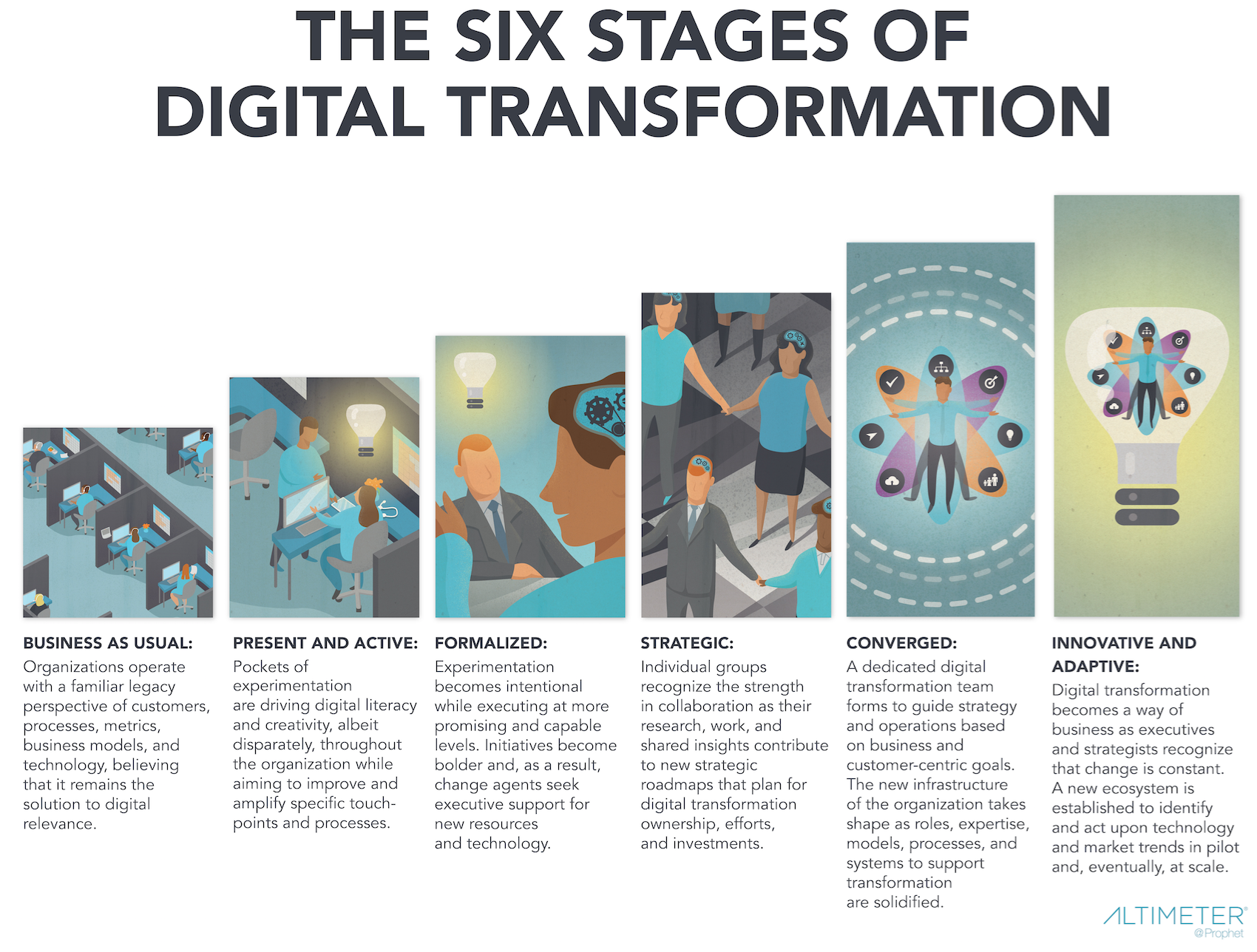
Digital Transformation Strategies for Businesses
- 0
In today’s fast-paced technological era, digital transformation has become a pressing need for businesses to stay competitive and relevant. Embracing digital transformation not only digitizes traditional processes but also enables companies to leverage emerging technologies to streamline operations, enhance customer experiences, and drive growth. In this article, we will discuss key digital transformation strategies that businesses can adopt to thrive in the digital age.
1. Set Clear Goals and Objectives
Before diving into the digital transformation journey, businesses must define clear goals and objectives. These goals will serve as guiding principles and help organizations in aligning their digital transformation efforts with their overall business strategy. Whether it’s improving operational efficiency, increasing revenue, or enhancing customer satisfaction, having well-defined goals will provide a clear direction for the digital transformation process.
2. Embrace Cloud Computing
Cloud computing has revolutionized the way businesses operate by offering scalable and flexible solutions. Migrating operations and data to the cloud not only eliminates the need for physical infrastructure but also provides businesses with increased agility and accessibility. Cloud-based tools and platforms enable seamless collaboration, data storage, and scalability, paving the way for enhanced efficiency and cost-effectiveness.
3. Implement Artificial Intelligence and Automation
Artificial Intelligence (AI) and automation have immense potential to transform business processes and improve productivity. By leveraging AI-powered tools and automation software, tasks such as data analysis, customer support, and inventory management can be streamlined and performed with greater accuracy and efficiency. Businesses can benefit from reduced costs, improved decision-making, and enhanced customer experiences through personalized interactions and recommendations.
4. Enhance Customer Engagement through Digital Channels
Digital transformation is incomplete without focusing on customer engagement. It is essential for businesses to leverage digital channels, such as social media platforms, mobile applications, and personalized emails, to engage with customers and provide seamless experiences across various touchpoints. Implementing customer relationship management (CRM) systems can enable businesses to understand customer preferences, tailor offerings, and foster lasting relationships.
5. Emphasize Data Analytics and Insights
Data analytics plays a significant role in digital transformation, as it enables businesses to leverage valuable insights for informed decision-making. By collecting and analyzing data from various sources, organizations gain a deeper understanding of customer behaviors, market trends, and internal processes. This data-driven approach empowers businesses to identify areas for improvement, optimize operations, and identify new opportunities for growth.
6. Cultivate a Digital Culture and Skillset
A successful digital transformation requires a cultural shift within the organization along with the development of a digital skillset. Promoting a digital-first mindset, fostering innovation, and investing in employee training are essential. Nurturing a culture that embraces change, encourages experimentation, and fosters collaboration will empower employees to adapt to digital technologies and drive the transformation journey.
7. Continuously Monitor and Adapt
Digital transformation is not a one-time process but rather an ongoing journey. Businesses must continuously monitor the effectiveness of implemented strategies and adapt to evolving market dynamics and emerging technologies. Regular assessments of performance metrics, customer feedback, and industry trends will enable organizations to refine their digital transformation strategies and remain ahead of the curve.
Conclusion
Digital transformation has become a necessity for businesses aiming to thrive in the technology-driven era. By setting clear goals, embracing cloud computing, implementing AI and automation, enhancing customer engagement, emphasizing data analytics, fostering a digital culture, and continuously monitoring and adapting, businesses can unlock the full potential of digital transformation. Embracing these strategies will enable organizations to stay competitive, meet customer expectations, and drive sustainable growth in the digital age.

